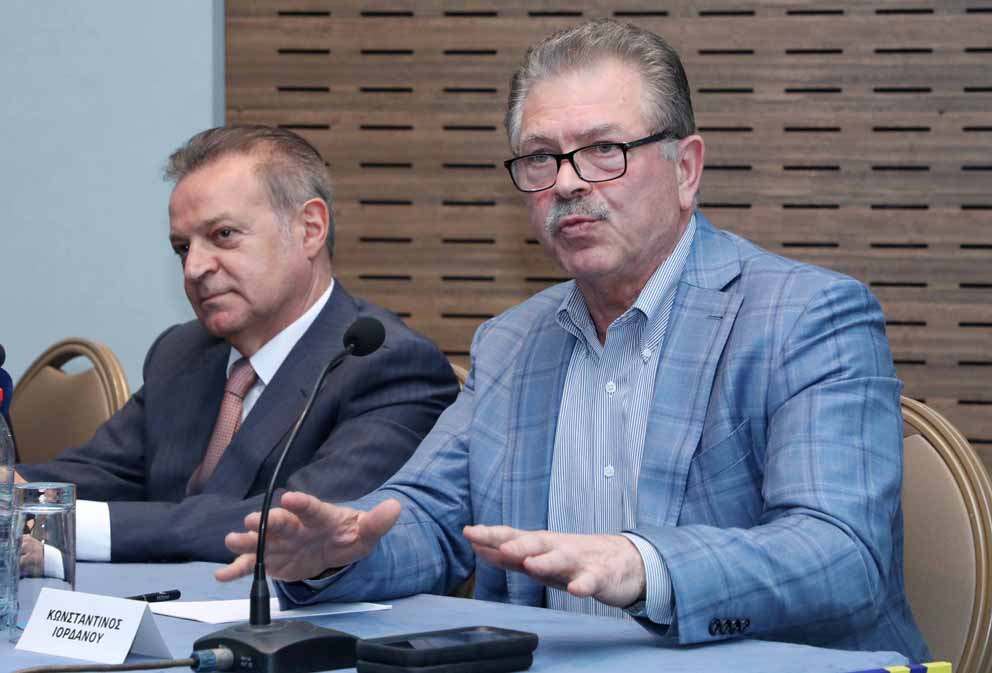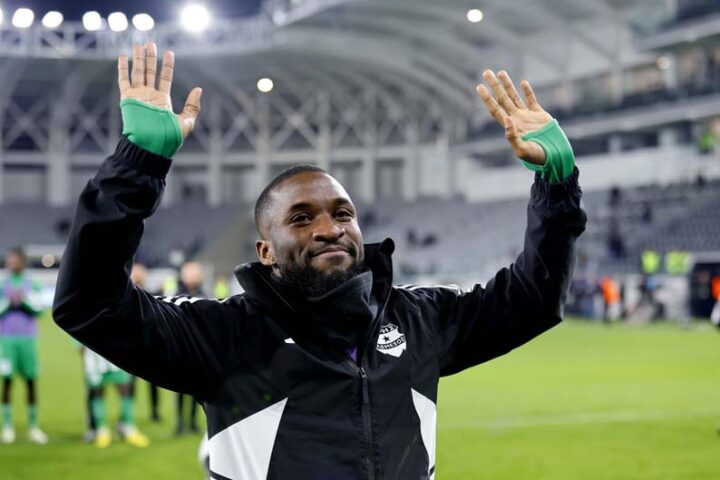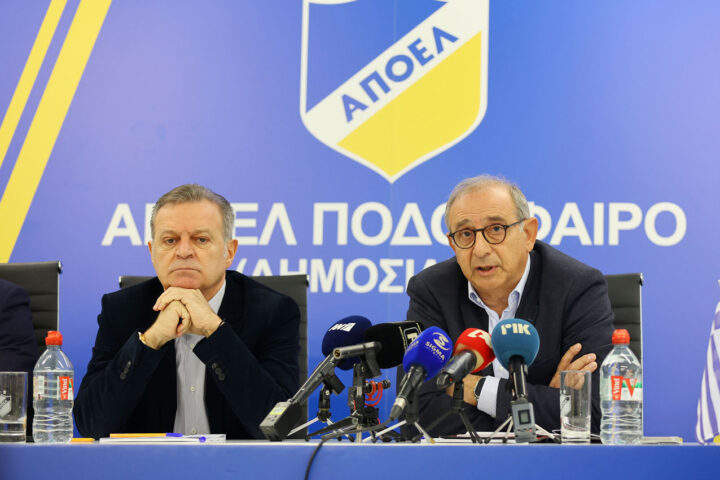APOEL Nicosia in €35 mln deal with US-based investor
Cyprus football giants APOEL Nicosia are edging closer to owning their own stadium, following a €35 mln deal with US based Cypriot investor Constantine ‘Dinos’ Iordanou, with a net worth of an estimated $273 mln.
The plans for the new stadium to be built in Kokkinotrimithia, to the west of the capital, were presented by president Prodromos Petrides and Iordanou himself on Friday.
The deal with Iordanou comes just months after APOEL Ltd, the company that operates the century-old club, announced that it was under the crushing weight of over €30 mln accumulated debt in June last year.
According to the presented plans, the first phase will provide 14,669 seats, and the final capacity of the stadium will be 19,269 seats after three phases.
The largest stand will be the South Stand with 4,470 seats, where the team’s hardcore fans will be ‘seated’, with potential for expansion to a further 1,400 seats.
The West Stand will have 3,115 seats, and the East Stand will have 2,614.
As for the North Stand, in the northwest section, which will be mostly dedicated to APOEL fans, there will be 2,820 seats, while the visiting fans will occupy the northeast section with 1,650 seats.
VIP seating will consist of 1,926 seats, reflecting the founding year of APOEL.
The construction of the stadium is estimated to take around 30 months, with project managers aiming to deliver the stadium by April 2028, and the construction cost is expected at €35 mln.
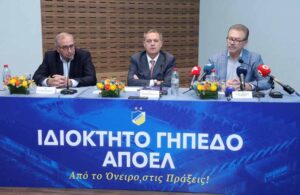 Regarding funding, Iordanou will be the primary investor covering up to 49% of the remaining building cost, after an expected government grant, through the Cyprus Sports Organisation (KOA) will cover 30-35% of the total cost.
Regarding funding, Iordanou will be the primary investor covering up to 49% of the remaining building cost, after an expected government grant, through the Cyprus Sports Organisation (KOA) will cover 30-35% of the total cost.
Efforts are also underway to secure additional investors for the stadium, as told by the club’s representatives.
Addressing the media on Friday, 74-year-old Iordanou said that his involvement in the project is more than a business investment for him.
“I left Cyprus 54 years ago. Not a day has passed without reminiscing about our Cyprus. I’ve been an APOEL fan since childhood. The dream of the APOEL family, to see the team own its own stadium, is also my own,” said Iordanou.
Nicosia gem
He added that the new stadium will be a gem for the capital, serving the youth by encouraging sports.
“I don’t want it to be a destination that only goes for a week to see APOEL playing, but it will offer much to our compatriots. Stadiums cannot survive only with a football team, but we must offer something more,” added the investor, hinting at plans for a mix-use project.
Asked whether he has plans to get involved in the company running the club, Iordanou said that he will only be investing in the company set up to carry out the project and manage the stadium.
Agis Metaxas, the CEO of the company to be set up to carry out the ambitious project, said that the club is in need of financial stability, if it wants to remain a force to be reckoned in the new era that has dawned on Cyprus football.
In the past few years, smaller clubs such as Aris Limassol and Paphos FC were taken over by wealthy investors who turned their flagging fortunes around. Aris clinched the championship last season for the first time in its 93-year history under the leadership of its Belarusian owner, Vladimir Federov.
“We are saddened by the fact that the team has not won any titles in the past four years, and we need to change this,” said Metaxas.
“We strongly believe that owning our own stadium is vital for our sustainability as a club,” he added.
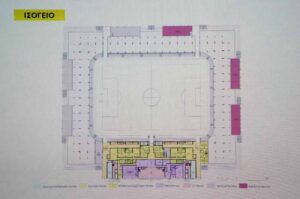 Asked, Metaxas said that, “with 70-75% of the project secured, we are moving forward promptly. We are confident that other investors will show interest as they will have steady returns”.
Asked, Metaxas said that, “with 70-75% of the project secured, we are moving forward promptly. We are confident that other investors will show interest as they will have steady returns”.
Metaxas said that the project will be a sports centre offering all amenities to the public and will add value to the area.
“It will be based on the standards of other European stadiums, with the capability of hosting concerts, seminars, businesses, boutiques, museums, restaurants, advertisements, and covered parking spaces”.
Iordanou is better known for launching Bermuda-based Arch Capital Group with Paul Ingrey and Robert Clements in 2002, an insurance and reinsurance entity, overseeing the firm’s holding company. He was named CEO in 2002 and chairman of the board in 2009.
In 2015, Fortune Magazine named him as one of its businesspersons of the year. He retired from the company in March 2018, saying he wanted to spend more time with his grandchildren, focus on philanthropy, play golf, travel for leisure, and many other activities.
Iordanou is also a director at Verisk Analytics, Inc. and has served as chairman of the American Insurance Association (AIA) and the Association of Bermuda Insurers and Reinsurers (ABIR). He is a founding member and lifetime trustee of the Pancyprian Association of America which was established in 1975.
In September of 2020, the Bank of Cyprus added Iordanou to its board of directors.
Rivals Omonia on same path
Meanwhile, earlier in the week, Omonia president and main investor Stavros Papastavrou, also US-based, met with the officials from the Cyprus Sports Organisation (KOA) to discuss plans to build their own stadium.
Reports say that Omonia plan to build a state-of-the-art stadium in a Tseri location, south of the capital, with a 15,000 capacity.
Omonia officials have kept quiet over their plans, letting media know that the new stadium will be called “Green City Park”, and will be a mixed-use project, which will include shops and a hotel.

